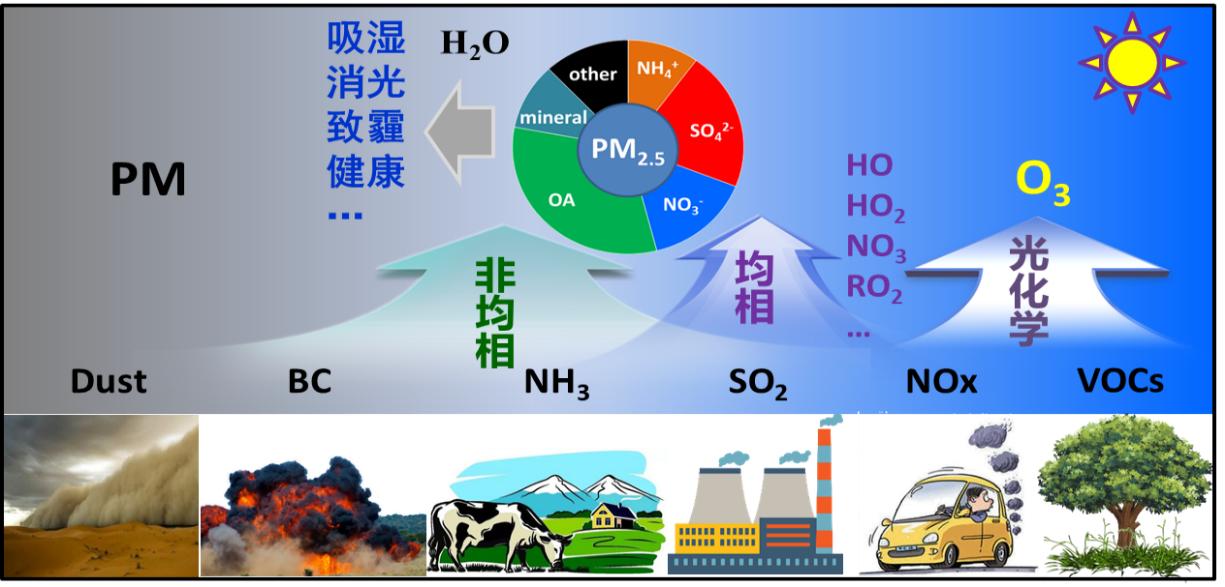At present, the prediction of PM2.5 and its key secondary components in the atmospheric model shows large deviations from field measurements, which indicates that there are unknown mechanisms for the formation of secondary particles in the atmosphere. Based on laboratory simulation and field observation, we have revealed a new mechanism for the formation of secondary particles under the conditions of complex air pollution, and put forward the "haze chemistry" theory to explain the cause of complex air pollution in China. The main idea is that the oxidation capacity and the explosive growth of the transformation from gaseous pollutants to particulate pollutants increases under the conditions of complex air pollution. The decrease of environmental capacity has resulted in frequent haze pollution events in central and eastern China and made governance difficult. It is suggested that key pollutants such as SO2, VOCs, NOx, black carbon and NH3 should be controlled to improve the environmental capacity.

Group of Environmental Catalysis and Green Chemistry

You are the 1854288th visitor
Copyright Professor Hong He's Group 2019